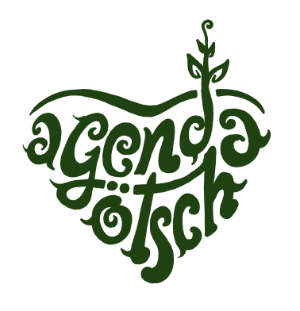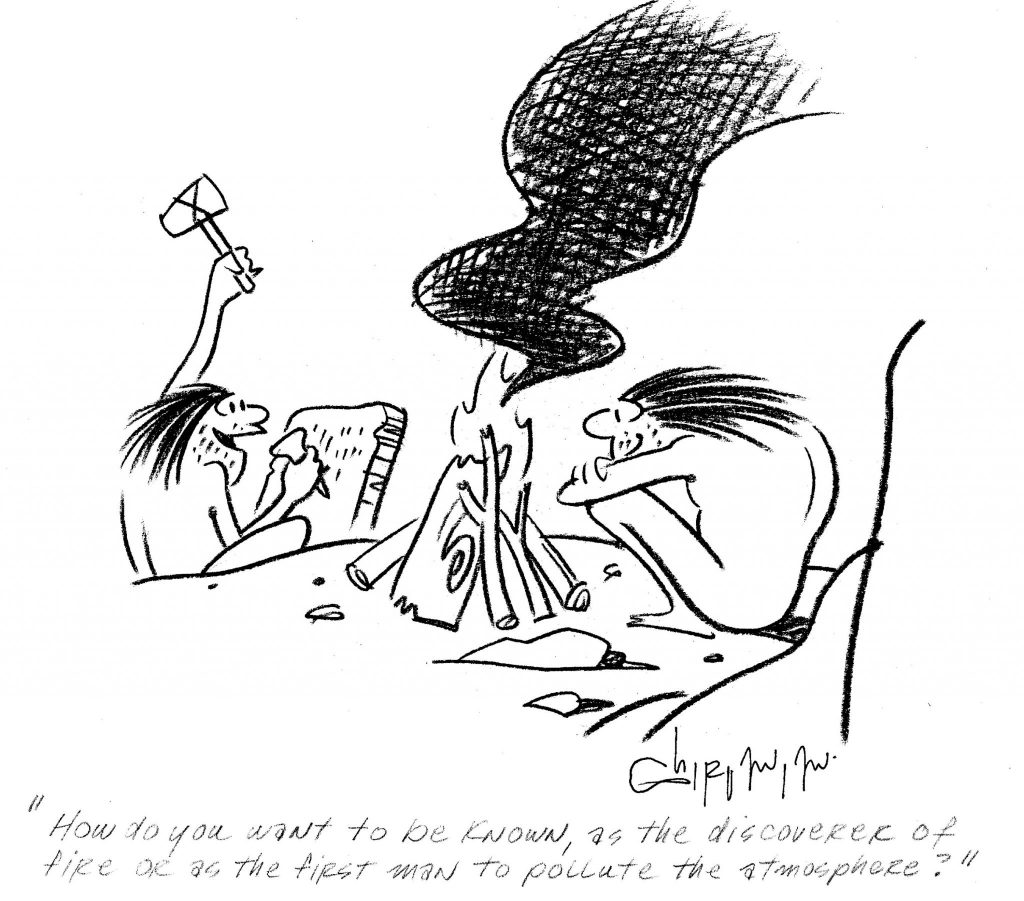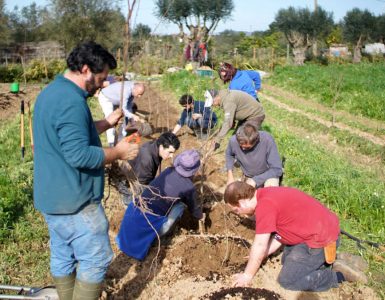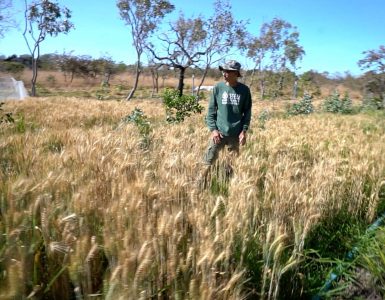Our current challenges
Currently, food, wood and fiber production have altered the capacity of humans to survive on the planet, while at the same time these activities had a major impact on the rest of biological diversity. Agriculture is the largest cause of deforestation in the tropics and has occupied 70% of the world’s grasslands, 50% of savannahs and 45% of temperate forests. It is one of the most responsible for pollution and climate change. In addition to addressing all these current, urgent and fundamental issues, agriculture also needs to account for twice as much production by 2050 due to population growth.
The panorama described above shows that although the current production model accumulates gains in productivity, the environmental, climatic and social implications associated with its paradigm impose barriers that make impossible its own continuity. When added, these factors should create a favorable scenario for innovation, after all, the same technology that seems to have condemned us to an unsustainable way of life, good or bad, was also what brought us here and now gives us a window opportunity to change. More than ever, we need to know what answers we want technology to offer us from now on, and what challenges are worthy of its attention.
If we keep our optimism and continue to plan vacations with the family without thinking about these serious problems, we have faith that technology, like a deus ex machina, will come up with solutions that are now unimaginable. It may even be true. But we run the risk that it’s only a comforting self-preservation instinct triggered in times of crisis, an escape by faith. But, after all, can technology save us? In this text, we reflect on the abstract values and social uses of the concept of technology, questioning its supposed neutrality and presumed authority in agriculture.
Behind the concept
Agriculture represents, by excellence, the interface environment of the man-nature-technology trinomial. What has historically been understood as innovation in agriculture has often been associated with the creation, use and application of technologies, whether in the field of agricultural production or organization.
For the researcher Alf Hornborg, technology would be the central fetishism of capitalism and the notion of technological progress an attitude of faith of neoliberalism, but also of Marxism and environmentalism. His premise is that all technology depends on an asymmetric transfer of labor and land, which he calls space-time appropriation. The most emblematic example comes from the Industrial Revolution itself, when European elites took advantage of land (extensive areas with new fertility), labor (slavery and/or servitude) and also the exploitation of discrepancies in production itself (global price relations) to support their technological revolution. Evidence of this relationship would help to deconstruct the fallacy of neutrality associated with technology. Before solar panels generate clean energy, they need: 1) large installations in countries like Algeria; 2) silicon mining in countries such as Brazil and China; 3) labor from countries where it is cheaper; for then 4) the energy to be consumed in the countries with greater purchasing power. This pernicious situation in which the capital destined to technology becomes politically innocent and morally exempt is denounced several times by the researcher. In that sense, technology would fundamentally be a way of organizing global human society.

Long before Hornborg – and from a different perspective – the German philosopher Martin Heidegger (1889-1976), in the essay entitled “The Question Concerning Technology” of 1949, already pointed out that there is a fundamental difference between what gives possible meanings to technology and what is its essence. From this point of view, we would be scratching the surface of the instruments of technology and its purposes, without questioning or rethinking its ontology. For the German philosopher, the quest for the essence of technology reveals that it has nothing of technique and has much of the expression of a way of being at a given time. For Heidegger, technology is neither good nor evil in itself. Neither it is neutral. It would be a challenging disclosure (Herausfordern) that imposes on nature the unreasonable demand to provide energy that can be extracted and stored. The great danger lies in what, in German, the author called Bestand, the reserve fund exposed to exploitation – available to serve technology. Not just like a stock or a warehouse, but as a source entirely at the immediate disposal, just as – in analogy used by the philosopher himself – an airplane taxiing waiting for the takeoff order, with all its operations ready to go. It would be like reducing the complexity of a river to a dam, exclusively designed to serve a hydroelectric plant, or the earth to a deposit of minerals to be extracted. This challenging disclosure that presents agriculture as “mechanized food industry,” would not happen, however, in the land cultivated by the peasant who incorporates in the work the care and maintenance of the place. Ultimately, what happens is the subordination of man and their activities to the same logic, whether he realizes it or not.
In general, when talking about technology in agriculture, little or nothing reflects the interpretation of such authors. Generally, technology is simply understood as the product of new discoveries and inventions. This technological epistemology has as its founding icon the steam engine and its associated idea of progress. From this same narrative, they come from more ordinary notions of efficiency and productivity (even today with the new style of information revolution). We trust in this technology to solve the current problems of sustainability. To meet the need for exogenous sources of energy, we strongly believe in the promise of renewable energy such as solar or wind. To overcome the limitations of fertile soils, we invest in research on hydroponics or indoor farms. In order to resolve (periodically and successively) the resistance and productivity of certain cultivated species, the bet is on the modification and genetic editing of organisms. We could dwell here on analyzing the internal contradictions of each of these proposals. But briefly, we can at least point out that such “controlled-environment agriculture”, a group that brings together many of these proposals, finds numerous criticisms regarding the cost of implementation and maintenance, the polluting waste generated (even in circular systems) and above all, the impasse of high energy demand. “Clean energy” solutions would lead to the curious (if not embarrassing) replacement of the sun with solar energy panels (Jonathan Foley).
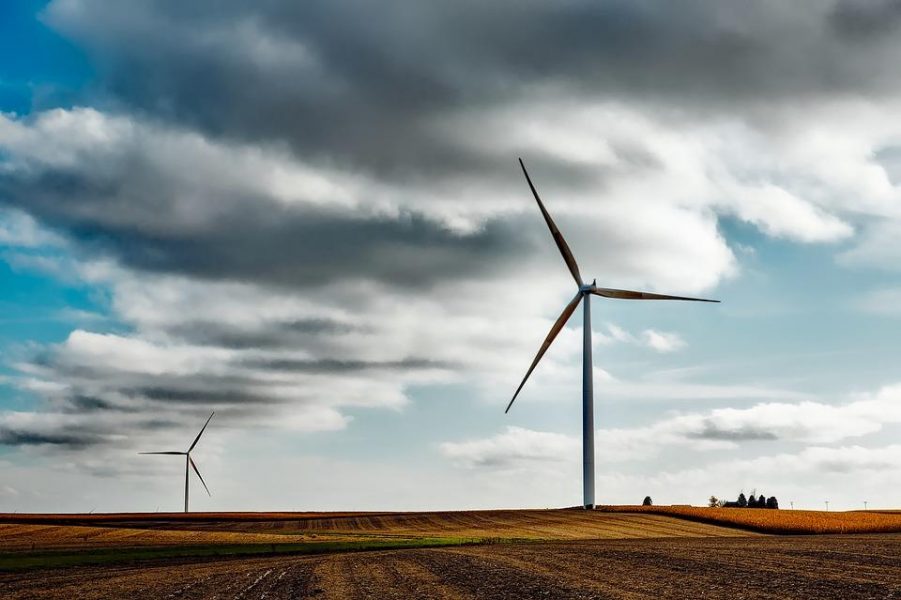
Technology dilemma
The reflection that Ernst Götsch’s Syntropic Farming suggests is that all these ways of coping with the problem have in common the fact that they do not question the other two axes of the aforementioned trinomial that represents agriculture: the relation of man to nature. We lost our connection not long ago. Our agricultural societies are recent compared to our existence as Homo sapiens (over 200.000 years). Agriculture represents our dominance over nature, and slowly replaced our natural tendency to care for other forms of life with a hostile anthropocentric attitude. In the past 10.000 years, we became the owners of the world, we made our tools and reshaped the planet according to our will, increasing at each step the gap between us and natural dynamics. We are (or should be) recognizing we can’t win this pretentious crusade against nature. As the american critics/comedian George Carlin said, there is nothing more pretentious than the slogan “save the planet”. The planet is fine. It has been through much worse than us in its 4.5 billion years. It’s a self-healing organism, and it will dust us off and continue its business. We should be the ones adapting to it, understanding and following its rules, not the opposite. In the same way, our technology should be focused on favoring natural processes, not the opposite.
As in a cyclical nightmare, we repeat the same behavior pattern: the action is extraction and the reaction is to combat the supposedly diagnosed limitations, without ever questioning whether this is the only or best way of guaranteeing our long-term survival, and of the environment with which we interact. We celebrate and consider more efficient exactly those technologies that better and for more time guarantee the maintenance of our current ways of life, even if these are, fundamentally, the causes of our problems. We need this questioning to know where to target our technological effort. That defines not only concrete investment fronts, but also the ethical and moral values that will guide future innovative minds.
References:
FOLEY, J. “No, Vertical Farms Won’t Feed the World”. Disponível em: <https://globalecoguy.org/no-vertical-farms-wont-feed-the-world-5313e3e961c0> Acesso em: janeiro de 2019.
FOLEY, J. A., Ramankutty, N., Brauman, K. A., Cassidy, E. S., Gerber, J. S., Johnston, M., … Zaks, D. P. M. (2011). Solutions for a cultivated planet. Nature, 478(7369), 337–342. https://doi.org/10.1038/nature10452
ROJCEWICZ, R. “The Gods and Technology”. State University of New York Press: New York, 2006.
HEIDEGGER, M. “The Question Concerning Technology (and other essays)”. Tradução para o inglês do original em alemão “Die Grage nach der Technik” (1949) por William Lovitt, Harper & Row: Nova Iorque, 1977.
HORNBORG, A. “Footprints in the Cotton Fields: the industrial revolution as time-space appropriation and environmental load displacement. Ecol. Econ. 59(1), 74-81, 2006.
HORNBORG, A. “Global Ecology and Unequal Exchange: fetishism in a zero-sum world”. Routledge: London, 2013.
HORNBORG, A. “Ecological Economics, Marxism, and Technological Progress: some explorations of the conceptual foundations of the theories of ecologically unequal exchange”. Ecological Economics Journal, Sweden, 105, 11-18, 2014.
ZAMORA, D., & Udawatta, R. P. (2016, October 1). Agroforestry as a catalyst for on-farm conservation and diversification. Agroforestry Systems. Springer Netherlands. https://doi.org/10.1007/s10457-016-0013-1
